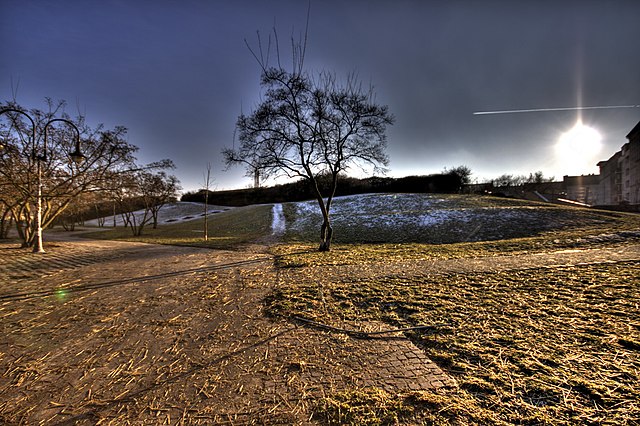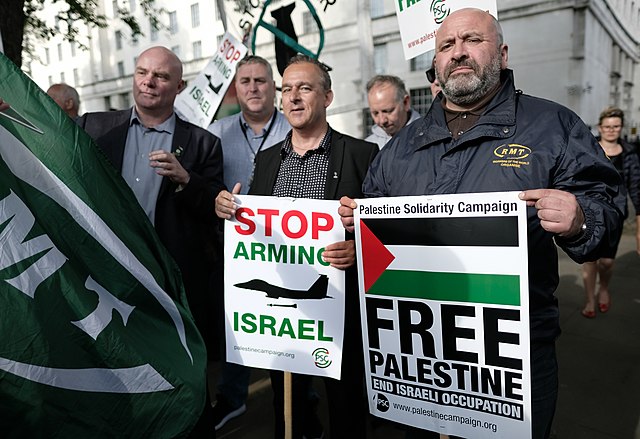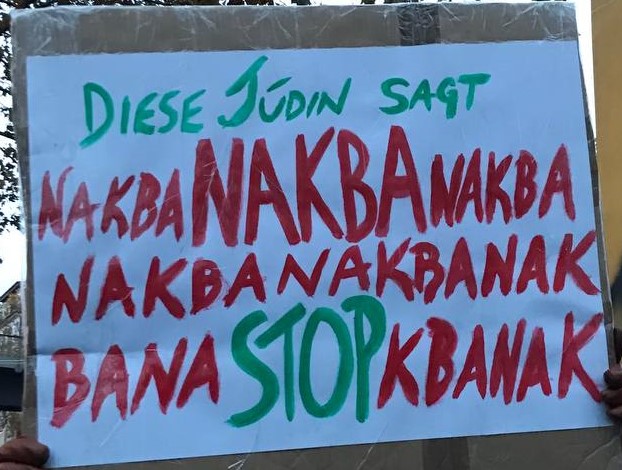NEWS FROM BERLIN
Thousands in Berlin protest against the war drive
Despite the cold weather, thousands of people from all over Germany gathered at the Brandenburg Gate in Berlin last Saturday to demonstrate in favour of disarmament and a ceasefire in Ukraine and the Middle East. The actual number of participants lies between the police’s estimate of 10,000 participants, and that of the demo organisers, of more than 20,000 demonstrators. People who already took part in the “Uprising for Peace” demonstration exactly nine months ago in February estimated this time that there would be significantly fewer people. On the previous demonstration, some attention focused on Sahra Wagenknecht, who was still a member of the Left Party at the time. Source: nd-aktuell
Warning strike at Berlin daycare centres
Once again on Tuesday, childcare workers and teachers are striking for more money and better working conditions. The trade unions ver.di and GEW are once again calling on employees of daycare centres to go on a warning strike. The background to this is the current wage dispute in the public sector of the federal states. No agreement has been reached in two rounds of negotiations. Negotiations are taking place nationwide, with the next round scheduled for 7 and 8 December in Potsdam. The trade unions have repeatedly drawn attention to their demands with warning strikes in Berlin in recent weeks. Source: tagesspiel
The Berlin stadium and its heritage
Some call the ensemble around the stadium the best-preserved Nazi artwork to date, while others speak of a “dark heritage”. Very little being actually contextualised. Instead, below the bell tower in the Langemarckhalle, you will find Hölderlin’s sacrificial motto in stone put there by the Nazis: “Live above, O Fatherland / and do not count the dead / Not one too many has fallen for you, dear one”. Those do not seem to be the best conditions for a Berlin Olympic bid. But that is what the black-red Senate in Berlin has done. On 14 November, the CDU and SPD signed a “Memorandum of Understanding” making a bid to host the Olympics. Source: taz
NEWS FROM GERMANY
The rights of the Palestinians
The Saarland Museum cancelled an exhibition by Candice Breitz with a video installation about prostitution, planned for spring 2024. The South African-born Jewish Breitz has recently advocated for the rights of Palestinians. Together with other Jews and Israelis, she organised a rally in Berlin on 10 November under the title of the cancelled conference “We still need to talk” for a ceasefire in the Middle East, the release of the hostages and freedom of expression in Germany. “We are the descendants of Esther Bejarano,” the South African referred to the Holocaust survivor and anti-fascist who died in 2021. Source: jungewelt
Peng! Collective Protest gegen Amazon
The German artist-activists Peng! Collective greeted the shopping frenzy of Black Friday Week with a campaign aimed at Amazon. Delivery companies in Germany like Hermes and FedEx as well as Amazon use subcontractors who often subcontract even smaller companies. Some of these operations, according to Rory Linton, spokesman for German union ver.di, are so small that they only employ two or three people and only exist for a short time. “They know they can’t fulfill the contracts if they have correct health and safety and pay a decent wage, so the big companies get rid of the responsibility,” he said. Source: dw
GDL move to strike again on the railway
The train drivers’ union GDL had cancelled the collective bargaining talks with Deutsche Bahn. This was announced by GDL boss Claus Weselsky last Friday. The reason for the cancellation of the negotiations was that the employers’ side did not want to negotiate in areas important to the GDL, he said. There was “no discernible will to negotiate” on the part of the railway, so further negotiations were “pointless”. In addition to the reduction in working hours, the GDL is also demanding an increase of 555 euros per month and an inflation compensation bonus for employees. Source: rbb
Number of major insolvencies at record level
According to a study by the credit insurer Allianz Trade, there are more and more major insolvencies in the German economy. “Major insolvencies have returned this year and are on course to reach their 2020 peak,” says Allianz Trade insolvency expert Maxime Lemerle. Allianz Trade defines major insolvencies as bankruptcies of companies with an annual turnover of at least 50 million euros. Allianz Trade study still points out the construction industry recorded the most insolvencies across all company sizes to date, followed by retail and companies in the service sector. Source: tagesschau
Wissing holds car manufacturers to account
Federal Transport Minister Volker Wissing (FDP) believes the industry has a duty to expand electromobility. Wissing also pointed out that politicians are working intensively on more progress in e-mobility and are pushing ahead with the expansion of the charging infrastructure. “There are currently around 100,000 publicly accessible charging points in operation in Germany. That’s twice as many as two years ago,” he said. The total charging capacity available has also risen from two to 4.3 gigawatts. Chancellor Olaf Scholz (SPD) wants to discuss the expansion of electromobility with the automotive industry this week at the “car summit” in the Federal Chancellery, too. Source: tagesschau




